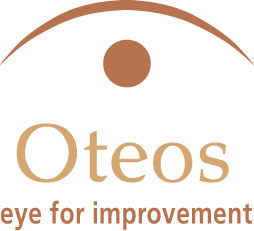For years now, I’ve been intrigued by a short article I read about an African tribe and how they deal with each other’s mistakes. I took a screenshot of it and have kept it on my phone ever since.
In this African tribe, when someone broke a rule or made a mistake, they take the person to the center of the village where the whole tribe comes and surrounds them. For two days, they will tell them all the good that he did over the past years. The tribe believes that each human being comes into the world as good. In the beginning, everyone desires safety, love, peace, and happiness. But sometimes, in the pursuit of these things, people make mistakes.
The community sees those mistakes as a cry for help. They then unite to lift man up, to reconnect him with his true nature, and to remind him who he really is, until he fully remembers the truth of which he had been temporarily disconnected: “I am good.” (May 17, 2014, the good men project)
Dealing with Difficult Employees
Not until recently, I actively connected this article to leadership and managers dealing with difficult employees. Difficult employees are often a challenge for management. Some situations like a violation of company rules such as stealing are less difficult to deal with than unpleasant behavior between or towards colleagues. In the last situation, it might seem tempting to wait and see how it develops. Inaction, however, can harm those involved, general workplace morale, and productivity. It might become a reason for other valued members of the team to leave the department or even the company. Management needs to intervene; it’s their responsibility. So don’t brush people away, take them seriously. Make sure there is confidentiality. Address the employee in question immediately so that the situation is still fresh in their memories!
Punishment
So when employees misbehave, do you punish them? If you do, keep in mind that it only has a short term effect and stops a specific action. It won’t change people’s behavior in general. It only teaches people how to avoid punishment. Think of a police camera that stops you from speeding as you pass it, after which you start to speed again. You want your employees to develop and have a sustainable and effective contribution to the team and its results. Not only when you are around but as a standard bar. To reach that state of collaboration, it’s better to create an environment where people want to do their job and feel safe to do so. That way, the need for punishment is way less.
Compliments
But how do you create that environment where people feel safe, appreciated, and empowered to develop? Your three basic golden rules come close to Skinner’s behaviorism theory:
- Embrace the good, give compliments for positive behavior;
- Ignore little everyday mistakes and incidents unless you see a concerning pattern;
- Only punish excessive behavior that needs to stop immediately.
I’m a firm believer in a complete focus on positive behavior. If you give three compliments and punish once, you have made a tiny step forward in building a relationship. Can you imagine what would happen if you gave more compliments? Even though at times it is so tempting to focus on the mistakes of others, you don’t want to feel like a cop, do you? And honestly ask yourself the question if that “cop behavior” would work on you! You want to give your team what they deserve, your full attention, constructive feedback, and coaching. Don’t lose your eye for the good in the members of your team, embrace it, and give them compliments!
Compliments are so powerful because they make people happy. When someone feels appreciated, they are willing to work harder to keep others happy. The happier someone is, the more meaningful their life gets. It confirms that you are seen, accepted, and loved by others! It will make them give their very best.
What do you do to inspire your team to develop and grow?

